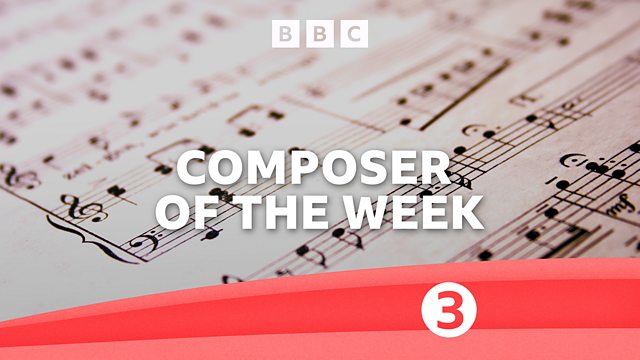
Leaving America
Donald Macleod shows how Dvořák’s American experiences continued to influence his music, even after he had returned home.
Donald Macleod shows how Dvořák’s American experiences continued to influence his music, even after he had returned home.
Antonín Dvořák became the first Czech composer to achieve global fame. His gift for transforming the folk styles of his native Bohemia into richly romantic classical music won him admirers far beyond his homeland. Consequently, Dvořák was approached to leave Europe and serve as director of the newly established National Conservatory of Music in America. His sponsors hoped he would help foster a new and distinctive American musical style, less reliant upon Germanic traditions. During his time in America, Dvořák composed many of his most celebrated works, including his Ninth Symphony and his Cello Concerto. This week, Donald Macleod focuses on Dvořák’s American years and uncovers what he achieved there .
Dvořák waved goodbye to America for the last time in April 1895. He’d become incredibly homesick for his beloved Bohemia and the financial prospects he’d been led to expect from his post as Director of the National Conservatory of Music had not materialised. Before leaving, he’d started work on his Cello Concerto, inspired by his yearning for the Bohemian countryside. Back at home, Dvořák also completed his String Quartet No 13 which some have seen to be his final work to have musical associations with America.
Dvořák’s had set out to encourage American musicians to look to their own traditions rather than simply following behind Europe. He may not have been entirely successful but he did encourage others in that aim, such as Harry T. Burleigh. Burleigh said of Dvořák that he’d assisted in changing attitudes of African Americans towards their own folk tradition, and most importantly, that Dvořák "was a man of the people".
Cello Concerto in B minor, Op 104 (excerpt)
Alisa Weilerstein, cello
Czech Philharmonic Orchestra
Jiří Bĕlohlávek, conductor
Dvořák Arr. J. Suk
Lullaby, B194
Josef Suk, viola
Vladimir Ashkenazy, piano
String Quartet No 14, Op 105 (Molto vivace)
Alban Berg Quartet
Cello Concerto in B minor, Op 104 (Adagio ma non troppo)
Alisa Weilerstein, cello
Czech Philharmonic Orchestra
Jiří Bĕlohlávek, conductor
String Quartet No 13 in G, Op 106 (excerpt)
Pavel Haas Quartet
Cello Concerto in B minor, Op 104 (Finale)
Alisa Weilerstein, cello
Czech Philharmonic Orchestra
Jiří Bĕlohlávek, conductor
Produced by Luke Whitlock
Last on
More episodes
Previous
Next
You are at the last episode
Music Played
-
![]()
Antonín Dvořák
Lullaby, B194
Performer: Josef Suk. Performer: Vladimir Ashkenazy.- TOCCATA CLASSICS : TOCC-0100.
- TOCCATA CLASSICS.
- 19.
-
![]()
Antonín Dvořák
String Quartet No 14 in A flat major, Op 105 (2nd mvt)
Ensemble: Alban Berg Quartett.- WARNER : 9029521984.
- WARNER.
- 6.
-
![]()
Antonín Dvořák
Cello Concerto in B minor, Op 104 (2nd mvt)
Performer: Alisa Weilerstein. Orchestra: Czech Philharmonic. Conductor: Jiří Bělohlávek.- DECCA : 478 5705.
- DECCA.
- 3.
-
![]()
Antonín Dvořák
String Quartet No 13 in G major, Op 106 (2nd & 3rd mvt)
Ensemble: Pavel Haas Quartet.- SUPRAPHON : SU-4038-2.
- SUPRAPHON.
- 2.
-
![]()
Antonín Dvořák
Cello Concerto in B minor Op.104 (3rd mvt)
Performer: Alisa Weilerstein. Performer: Czech Philharmonic Orchestra. Conductor: Jiří Bělohlávek.- DECCA : 478 5705.
- DECCA.
- 3.
Broadcast
- Fri 17 Jun 2022 12:00BBC Radio 3








